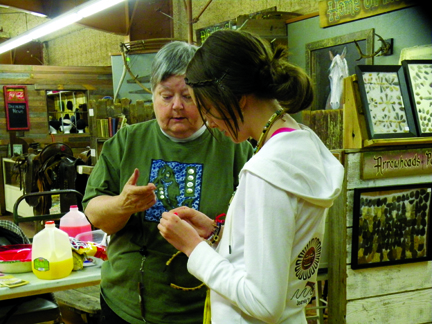Single with wheels; hitting the road together
They call themselves “Loners on Wheels” (LoWs) and they travel far and wide—single folks who love to RV and socialize with other singles. The Pacific Northwest Chapter (Nor’West LoWs RV Club) consists of mostly Western Washington, Canada and Oregon participants.
Carol Ortiz, who lives in Olympia, owns an Airstream and is one of the rally coordinators for the group’s upcoming event from Aug. 30 to Sept. 6 at Washington Land Yacht Harbor, an RV park in Lacey, WA where Ortiz resides.
“We often say we are not a matchmaking club,†said Ortiz, “just singles who enjoy camping together.â€
Campouts and rallys include trips to local attractions, opportunities to play cards and games, campfires, lots of great conversation and of course, food and fun.
The upcoming rally will offer senior driving classes, fire extinguisher seminars, RV maintenance seminars, crafts, entertainment, happy hours, games, a variety show, remote car races, a silent auction and hay ride, a pet parade and more.
April through October Nor’West LoWs try to have a campout each month. “There is a secure feeling traveling with a group,†said Ortiz who has been a member for about three years.
Ortiz enjoys exploring new places and appreciates the camaraderie of the group. She just turned 70 and said the age of members ranges from 50 to 80. “We have some inspiring older folks in their 80s who are still RVing,†said Ortiz, adding “They are my heroes!â€
Chapter President Inez Hybholt, who is 84 years old and still drives her RV to events, joined in 1991. “LoW’s was formed in 1969,†she said, “as a group for single people to get together that liked to RV.†LoW’s chapters exist throughout the United States.
When asked why she joined Nor’West LoWs, Hybholt said she was in her early 60s when she realized she always wanted to travel the U.S.
“I thought it would be fun to RV so I looked in the newspaper for RVs and saw clubs listed in Seattle.†She went to a Nor’West LoWs rally in Shelton and was hooked. “I thought these are my kind of people. I went out and bought a used Class B in September of that year and was ready to hit the road in October.â€
Now on her third RV, Hybholt has clocked well over 100,000 miles in her adventures.
Acknowledging that the security of traveling with a group is important, Hybholt likes the company of other folks as well. Now everyone has a cell phone, but when she first joined every member had a CB to stay in touch.
Anyone interested in joining LoW’s can call membership chair Al Cottler at 253-906-8222 or e-mail him at alinwa@earthlink.net. The website for the group is www.norwestlows.com and the national group’s website is www.lonersonwheels.com.
Loners on Wheels has 50 regional chapters in the U.S., Canada and Mexico.
 Four years ago Tony McKennon moved to Washington state. Intent on writing and illustrating children’s books, McKennon said he saw the Tacoma area as a “great blend of urban and natural in close proximity.â€
Four years ago Tony McKennon moved to Washington state. Intent on writing and illustrating children’s books, McKennon said he saw the Tacoma area as a “great blend of urban and natural in close proximity.â€